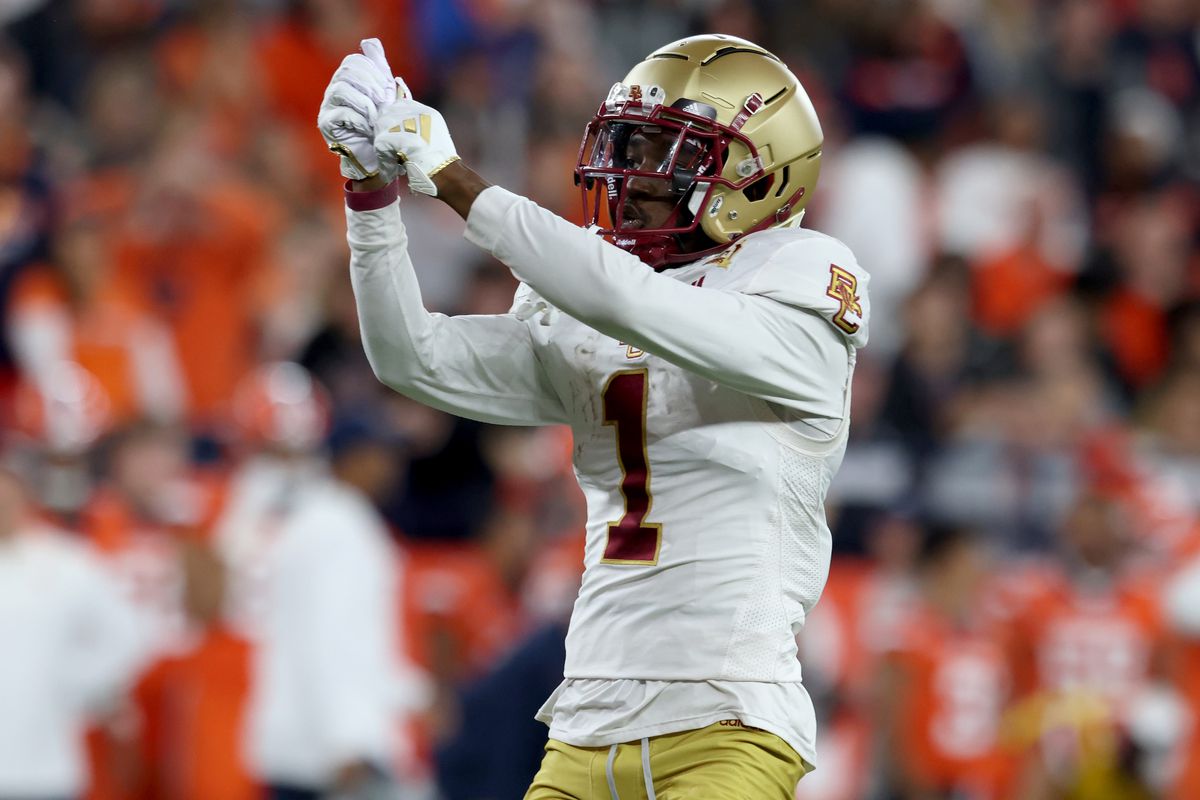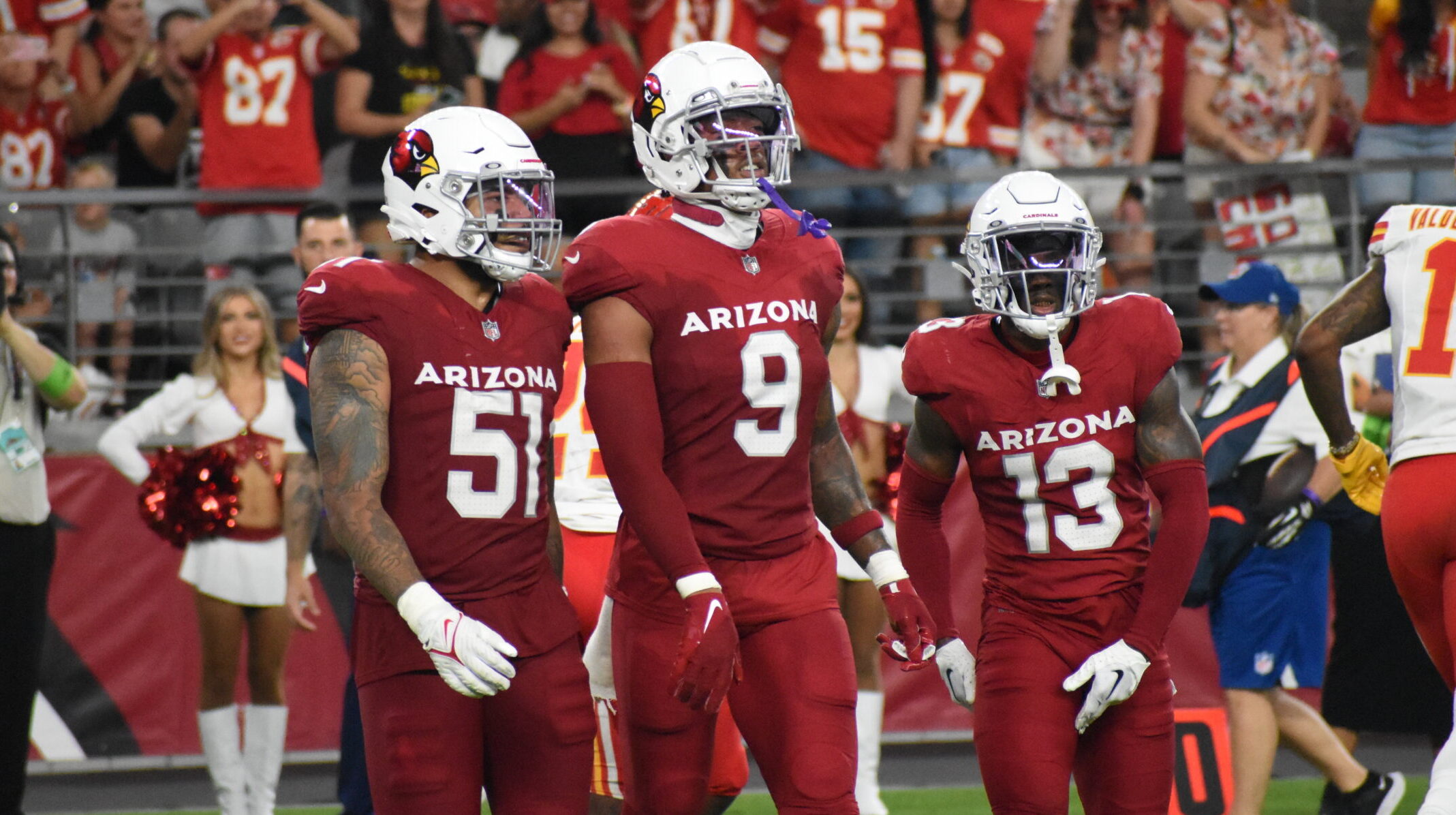
The Cardinals’ final defensive play of 2023 mirrored much of their season’s struggles. Starling Thomas V played soft coverage on Tyler Lockett, failing to defend a simple skinny post route. Lockett created significant separation, making it easy to catch a 34-yard touchdown, even though Geno Smith’s pass was underthrown. Thomas didn’t turn his head, allowing Lockett to adjust and make the grab.
This play was emblematic of a season where Arizona’s defense was often ineffective. Despite teams not needing to pass much against the Cardinals due to their poor rush defense, Arizona still allowed 6.7 net yards per pass attempt, the third-worst in the NFL. The pass rush struggled, and the coverage was just as poor, with Pro Football Focus ranking their pass coverage grade as better than only the Rams and Broncos.
However, as the 2024 season approaches, there’s renewed optimism around the Cardinals’ cornerbacks, driven largely by their youth. The front seven consists of experienced veterans with limited upside, while the safety duo of Budda Baker and Jalen Thompson is well-established. The cornerbacks, on the other hand, are full of untapped potential.
“I’m excited about it,” said defensive coordinator Nick Rallis. “I think there are a lot of guys that can play.”
Elijah Jones
Leading the cornerback group is veteran free agent Sean Murphy-Bunting, who brings stability. The rest of the unit is built on potential. The Cardinals drafted Max Melton in the second round, Elijah Jones in the third, and Jaden Davis in the seventh. These rookies join second-year players Garrett Williams, Kei’Trel Clark, and Thomas, adding depth and youth to the position. Williams, who returned last October from a torn ACL, is now participating in his first healthy training camp and feels much more comfortable focusing solely on football.
The youth and speed of this group are particularly promising. Melton recorded a faster 40-yard dash time than most of the corners drafted ahead of him, while Jones and Davis also ranked among the fastest in their draft rounds. The Cardinals also selected Dadrion Taylor-Demerson, the fastest safety in the draft, in the fourth round, underscoring their emphasis on speed in their defensive backfield.
“We knew we were going to bring in some young guys,” said cornerbacks coach Ryan Smith. “And in our evaluation process, we identified speed as a crucial factor for the cornerback position.”
The reasoning behind this approach is straightforward: Speed is a natural asset that can’t be taught. However, to build such a fast unit, the Cardinals had to accept certain drawbacks. There’s a reason why their new cornerbacks, especially those likely to make the roster, weren’t drafted as high as their speed might suggest.
Max Melton missed 12 tackles last year, the second-most among drafted corners, while Elijah Jones has below-average strength and committed six pass interference penalties over his last 16 games.
There’s also inherent risk in relying on rookies, despite their enticing potential.
“When you’re thrown into the fire, you just have to be able to play,” said Kei’Trel Clark. “You can’t sit there and wonder, ‘Can I compete with these guys or not?'”
Clark speaks from experience. He started last season as a first-stringer but lost his job by midseason, only returning to the field when injuries decimated the Cardinals’ secondary. Despite these setbacks, Clark emphasized that confidence is the most critical trait for a rookie. While a rookie corner may feel prepared in terms of technique and understanding of the scheme, it’s impossible to truly know until they step onto the field in Week 1.
“That’s when you start to see everything move a little faster,” Clark noted. “And that’s when you can identify what you need to improve.”
The Cardinals are confident that the intelligence of their rookies will help shorten their learning curve and address any weaknesses from their college days.
Smith was particularly impressed by Melton’s ability to recall tiny details from random plays during his pre-draft interview. “He understood football,” Smith said. “He has a really high football IQ.”
Defensive coordinator Nick Rallis was equally impressed with Jones’ interview, noting, “I was sitting there taking notes. I thought, ‘This is a great way to prepare; we should incorporate this into our routine.’ His week-to-week preparation process is incredible.”
Both players also possess the versatility the Cardinals value. Melton played 60 snaps at nickel last year, and Jones logged 109. Williams can also play both inside and outside. Last year, he focused on nickel but primarily played outside in college. This versatility allows Rallis to tailor the game plan to each opponent and disguise the defense’s intentions on any given play.
For the Cardinals’ defense to be effective, their young cornerbacks will need to demonstrate all these skills—speed, intelligence, and versatility—working together. And they’ll need to do it quickly. The Cardinals face the toughest schedule in the NFL over the first 10 weeks, based on projected win totals. The “easiest” quarterbacks they’ll face are the top two picks in the NFL draft, Caleb Williams and Jayden Daniels. The toughest include names like Josh Allen, Justin Herbert, and Jordan Love.
If the defensive line doesn’t make an unexpected leap forward, the responsibility for slowing down these potent passing attacks will fall heavily on the young secondary.






